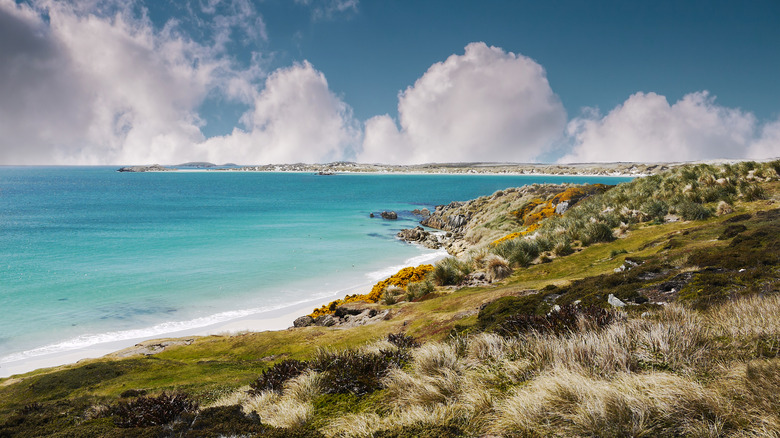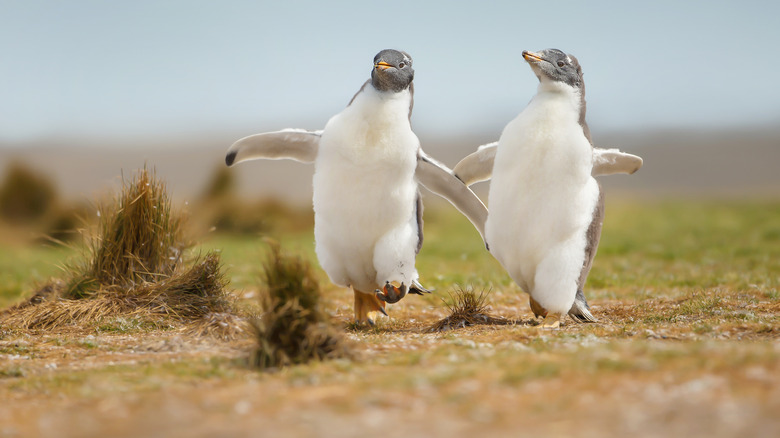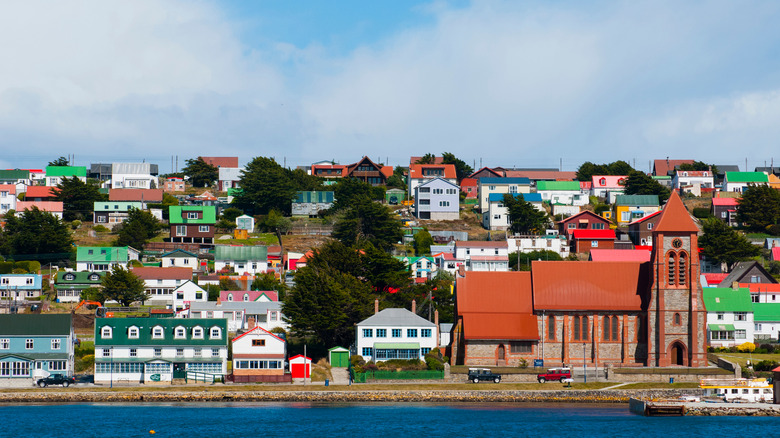Where Are The Falkland Islands And Who Owns Them Today?
The Falkland Islands are a rocky archipelago in the south region of the Atlantic Ocean, hundreds of miles from Argentina's southern Patagonian coast, and thousands of miles from just about anywhere else. The windswept islands are home to a few species of penguins and other aquatic birds, a few thousand people, and an untold number of sheep.
For a few weeks in 1982, the archipelago was the scene of a war, of sorts, between Argentina and the United Kingdom over the sovereignty of the islands. When the dust had finally settled, nothing had changed, save for nearly a thousand deaths on both sides of the conflict as well as the deaths of three islanders.
These days, the island chain has a stable economy and population and is keen to assert its independence free of unwanted Argentine influence.
This is the truth about the Falkland Islands and who owns them today.
A long-running dispute between Argentina and the UK
As is the case with many New World localities, it's difficult to say when the Falkland Islands were first "discovered," especially considering that natives may have been there hundreds if not thousands of years before the arrival of Europeans. However, by the 18th century, both the French and the British had set up colonies in the region, according to Julius Goebel's book, "The Struggle for the Falkland Islands: A Study in Legal and Diplomatic History."
Over the ensuing centuries, Argentina and the U.K. would repeatedly press their claims on the islands, which at the time were a strategic point along the trade routes in the South Atlantic. In 1840, the islands officially became a Crown colony, according to the book, "The Last Colonies."
Argentina, however, wasn't prepared to give up the islands, and in 1982, things came to a head. According to the book "The Falklands War," a ruling military junta that had seized power in the country tried again to assert a claim over the islands, and this time with military force.
When events finally settled down in the Falklands war, over 600 Argentines, 255 Britons, and three islanders were dead from the fighting. Meanwhile, nothing changed, and the islands remain British territory to this day, even as Argentina continues to assert its claim over the archipelago.
The Falkland Islands are kind of independent but kind of not
The 3,400 or so people who live on the Falkland Islands govern themselves, according to the country's website, although they remain a British overseas territory, meaning that the U.K. is responsible for the country's defense and foreign affairs.
"Through our own efforts, our economy allows us to enjoy excellent health services and education provision, with Falkland Islanders studying for their A-levels and degrees overseas, paid for by the Falkland Islands Government," the country notes on its website.
Further, if the language on the country's website is any indication, the Falklanders have little patience for Argentine interference.
These days, the economy of the islands no longer relies as much on sheep herding as it once did, though wool still plays a key role in the country's exports. Fishing licenses, tourism, and oil exploration round out the islands' economy.
Further, though the country did face a population decline in the early part of the 20th century, as younger people sought opportunities elsewhere, the decline has been reversed thanks in part to immigration, according to the book "Ethnic Groups of the Americas."


